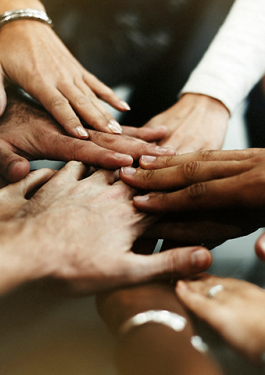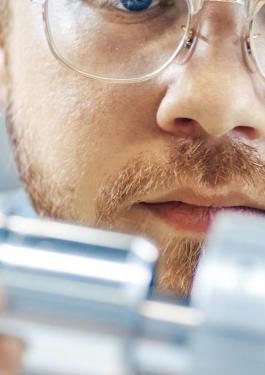
World Standards Day: certification supporting UN Sustainable Development Goals
On October 14, Bureau Veritas will join companies around the world to celebrate World Standards Day, a global initiative established by the members of the IEC, ISO and ITU to promote the value of standards.
This year’s campaign focuses on the use of standards in achieving the United Nations Sustainable Development Goals (SDGs). International standards provide policymakers, businesses and other stakeholders with the practical solutions to implement, measure, monitor and achieve the SDGs’ objectives. Read below how standards can help you make a positive contribution to people and planet.
Putting people first
The first five SDGs center on improving people’s wellbeing; they cover eradicating poverty and hunger, improving health and access to education, and promoting gender equality. Certification to international standards supports these goals by verifying that products are healthy and safe for human use and consumption, and that quality expectations are met. Certification also contributes by helping companies demonstrate their actions for social inclusion, non-discrimination and gender equality.
Certification to Food Safety Management (ISO 22000), for example, drives companies along the value chain to achieve the highest levels of food safety. This prevents unhealthy, harmful products entering the market and helps achieve sustainable agriculture and food production.
Responsible businesses can also certify their Health and Safety Management System (ISO 45001) to prevent workplace injuries or illness and demonstrate their commitment to safeguarding the wellbeing employees worldwide.
Building prosperity and boosting growth
SDGs 7 to 11 relate to industry, innovation and infrastructure, decent work, and economic growth. Certification to international standards supports these objectives by creating competitive domestic markets, and boosting domestic and cross-border trade by enabling companies to meet regulatory, national and trading partner requirements.
The Quality (ISO 9001) certification process supports businesses establishing a robust Quality Management System for continual improvement. Monitoring, identifying and rectifying non-conformities allows companies to achieve greater efficiencies and exceed customer expectations.
Certifying their transition to clean energy alternatives allows companies to improve energy management and align with international targets. Options for this include certification of Energy Management Systems (ISO 50001), and renewable Biofuels schemes such as ISCC. Companies can also earn energy savings certificates and prove the sustainable origins of bioenergy powering their operations.
Protecting our planet and managing its resources
Goals six and 12 to 15 of the SDGs address the protection of the environment, natural resources and humans in the world. They cover curtailing climate change; reducing pollution; safeguarding biodiversity; managing water, waste and natural resources; and defending human rights.
The move towards a circular economy business model (CIRCULAR+ ) necessarily involves more sustainable waste management. Certification of Environmental Management Systems (ISO 14001) can help minimize waste, move towards closed-loop recycling, increase operational control, and integrate environmental considerations into business strategy.
Similarly, more and more companies are adopting and communicating carbon-neutral and net zero targets. Carbon footprint verification before lowering their greenhouse gas emissions and afterwards prove they are meeting reduction goals. They can use certified carbon offsetting and removal projects which must be validated and verified with an independent third party, so that the companies can prove that real emissions reductions were achieved and demonstrate transparency and commitment.
How certification can help
Bureau Veritas Certification is a world-renowned accredited body providing certification to multiple internationally recognized standards. As a trusted partner for businesses across the world, our commitment to client-centricity, excellence, innovation, ethics and impartiality is unwavering.
Our auditors have the skills, experience and industry know-how to identify challenges that can help businesses tackle and meet the SDGs through everything from comprehensive management systems to specific and targeted schemes. We help our clients move forward by being innovative in our approach and delivering professional services across the board.








